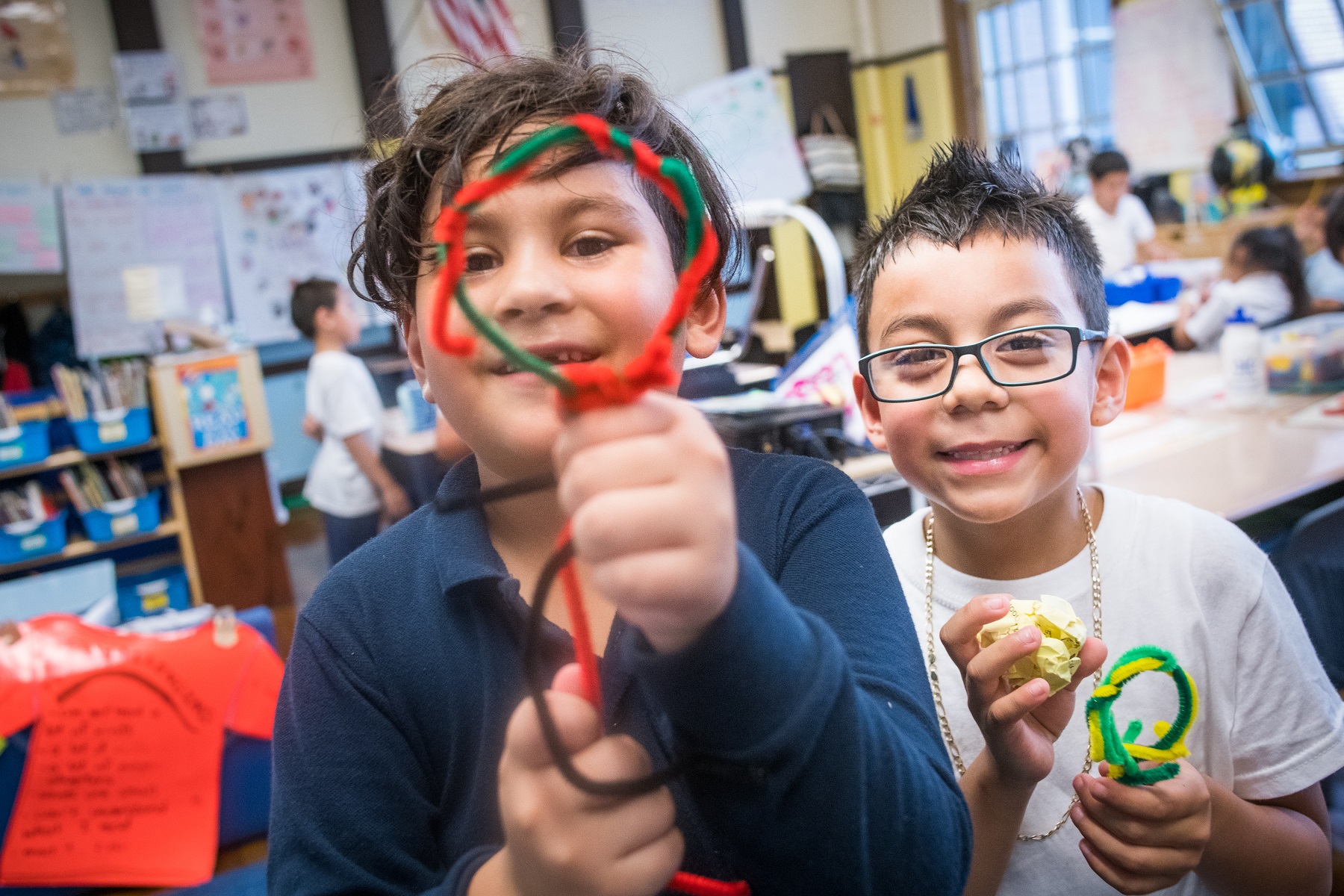Research & Insights / Lessons in Deeper Learning from the McKay K-8 School
Lessons in Deeper Learning from the McKay K-8 School

By Emily Barr
At the 2019 School on the Move Prize Ceremony, EdVestors and the Rennie Center for Education Policy & Research released new research on the 2018 School on the Move Prize winner, the Donald McKay K-8 School. The case study, detailing the improvement story of the McKay, focuses on the importance of creating deep, engaging, and relevant learning opportunities for students and outlines the conditions necessary for these deep learning opportunities to take root in classrooms across the school.
In 2013, the McKay was ranked in the bottom 6 percent of schools statewide. The building was characterized by a “closed door” culture where teachers didn’t have opportunities to learn from their colleagues. By 2018, there was a visible shift in culture to a school where adults are committed to learning and growing together.
Today, the McKay is a school where teachers—and subsequently their students—have the freedom to be creative and learn together. The McKay transformed from a place where learning was quiet and highly structured to a place where learning is noisy, active, engaged, and more relevant to students’ daily lives
“The McKay used to just be a school for students to come in and focus on work. But it has changed into something else: a place where students and teachers come to overcome anything that stands in their way, to learn from their mistakes, and explore new things.”
The case study outlines how the school shifted from a top-down approach to one of distributed leadership over three phases:
1. Principal-directed focus on instruction
The summer before his first year as principal, Jordan Weymer heard a concern from teachers that current instruction did not adequately support, challenge, and engage students. He decided to focus initial efforts on building teacher capacity to deliver standards-aligned and engaging instruction, while looking ahead to create systems to eventually shift from principal-driven reform to teacher-empowered improvement. A crucial prerequisite for this work was creating a culture of trust where teachers were willing to ask for support, try new strategies in the classroom, and see mistakes as an opportunity to grow.
“School transformation is all about attending to both the professional and the personal."
2. Building Teacher Leadership
In the 2014-2015 school year, the McKay identified the time and the methods to increase effective teacher collaboration; they made changes to the master schedule and hired a consultant to provide leadership coaching to teachers who raised their hands to take on this role. Teacher leaders at each grade level were now directly involved in identifying schoolwide priorities and communicating decisions to grade-level teams. As teacher leadership increased, administrative involvement decreased. Teachers were immediately seeing the impact of their feedback on schoolwide priorities for curriculum and instruction, as well as on the broader school culture.
“We became really close as a grade-level team. You can walk into any of our classrooms and we’ll be doing the same thing… We’re able to brainstorm and help each other."
3. Students at the Center
As teachers began shaping schoolwide priorities, deepening student engagement rose to the top of the priority list and took form in a variety of new ways, including a focus on student voice. Lessons where students shared their own personal stories became integrated into classrooms, such as researching, recording, and editing their own podcasts to be sent into the NPR Podcast Challenge. The McKay brought in expertise from Boston University’s Student Discussion Lab to make sure efforts to increase student voice in the classroom were being addressed with an equity lens.
The McKay’s need to support the whole child became more urgent as teachers recognized the negative impact the national conversation around immigration was having on students and families. Staff provided support for undocumented students and families around the school through posting caring messages and disseminating information on legal rights around the school.
With the increase of student voice and agency strategically cultivated in classrooms, students had developed the skills to take matters into their own hands to drive change in their school and community. They organized the first annual Immigrant Pride week in 2018, which culminated in a school-wide immigration rally that expanded to a neighborhood-wide march in 2019.
Seeing the impact that relevant learning opportunities have on student outcomes, McKay teachers and staff are excited to deepen this work by more actively engaging students and families in classroom and schoolwide decision-making, giving instructional voice to the most important stakeholders of all.
“I was selected to be in student government and made big changes not only in our school but also all around the community. We made a successful pep rally, planned a small walk-out, made signs and posters, designed t-shirts, and displayed immigrant pride to show how much we support immigrants. We are planning another successful Immigrant Pride Day, got new windows, better food, new painted hallways, new furniture, new fun equipment, newly painted doors, and a healthy vending machine."
Read the full case study here.
Read more about McKay's story of change in WBUR's feature article.



